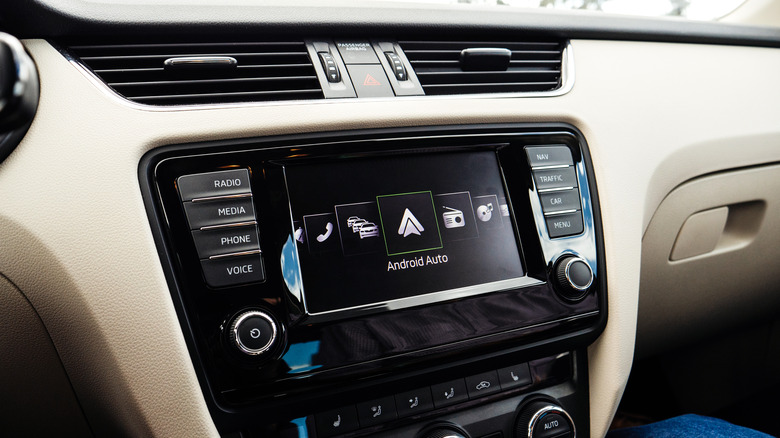

Why You Might Not Be Able To Buy A Car On Sunday
source link: https://www.slashgear.com/1562699/why-you-cant-buy-car-on-sunday/
Go to the source link to view the article. You can view the picture content, updated content and better typesetting reading experience. If the link is broken, please click the button below to view the snapshot at that time.

Why You Might Not Be Able To Buy A Car On Sunday

Many are used to not being able to buy alcohol and certain chicken sandwiches on Sundays, but it may be surprising to hear that applies to cars as well. After all, it seems like an ideal day to purchase a new vehicle. One tends to be too tired for a large purchase of that nature after work, and it's not something you can accomplish during a lunch break, so a Saturday or Sunday seems ideal. But, if you showed up on the latter, there might be no salesperson to greet you. Just a lot full of cars you can't test drive.
One wouldn't think that buying a car had any relation to buying liquor until you consider Blue laws. These are laws that were originally developed to prohibit certain activities on specific days, and in the case of Sundays, often enacted so religious people could worship and/or rest for the Sabbath. There are 12 states that prohibit car sales on Sundays, including Colorado, Indiana, Illinois, Iowa, Minnesota, Missouri, Maine, Mississippi, Louisiana, New Jersey, Pennsylvania, and Wisconsin. The laws tend to vary from state to state, and while some don't restrict purchases, they may limit the hours, including states like Maryland, Michigan, and Nevada, among several others.
Work hours and banks play a role too

But there's a reason there hasn't been a major uproar against car dealerships often being closed on Sundays. Car salespeople are no different from most others in hoping to avoid work on the weekend, and dealership management typically seeks to give their employees a rest. Selling cars is difficult work, and being open too often could lead to overworking and sales issues. It would also make it difficult to hire people in the first place if Sunday work is required. Some people turn down entire careers so they don't have to work on the weekend.
The other issue with Sundays is that buying a car isn't like buying a candy bar; various entities often need to be involved in the transaction, like banks, insurance companies, and government offices for vehicle registration. All of them tend to be closed on Sunday as well, and this can sometimes delay core elements of the car buying process, like auto loans going through. But again, this often depends on the locality, and financing may still be available regardless.
In any case, knowing the reasons may alleviate some of the frustration when you feel like buying a car on Sunday, and wonder why local dealerships don't feel like selling you one. It may just have to wait until the following Saturday when the dealership is probably very busy as a result.
Every Popular Android Auto Maps App Ranked Worst To Best

Android Auto users can choose between many map apps, each of them bringing their unique strengths and weaknesses to the table and catering to different preferences and needs. Nowadays, when navigation isn't just about directions but a seamless experience, the call for map apps that offer more than mere routes grows louder, too. These apps have assumed a pivotal role in our contemporary journeys, from outsmarting traffic snarls to delivering real-time updates on road mishaps and hurdles and even adding a sprinkle of joy to the drive.
There are certain things drivers come to expect from popular map apps specifically for Android Auto, like ease of use, accurate aviation, turn-by-turn directions, and seamless integration. So, in this article, we compare and contrast some of the more popular options out there for drivers to make an informed decision. From wrestling with initial setup hurdles to delivering a steady stream of real-time traffic insights, these apps have orchestrated a symphony of change in how we chart our courses.
5. MapFactor Navigator
MapFactor Navigator offers several benefits to users seeking reliable navigation solutions but ultimately falls short as a good competitor for Android Auto. The app distinguishes itself by providing free turn-by-turn GPS navigation, utilizing maps from OpenStreetMap. There are instances where the app shines, particularly when it comes to avoiding obstacles like low bridges and narrow lanes for trucks and a HUD in the Pro version. This focus on enhanced navigation safety and precision is a commendable feature — especially for trucks, with TomTom Truck maps and custom parameters like height and width.
However, MapFactor's user experience can be really limiting. While the app offers free maps and postcodes, it might lack certain advanced features or options in higher-ranked competitors. In fact, many of the features like online search, alternative routes, and live traffic are behind a subscription. The UI can also seem outdated, although it boils down to personal preference. You can navigate general areas using the free version, but more detailed maps are in-app purchases.
4. Sygic
Sygic's integration with Android Auto is a testament to its dedication to enhancing the driving experience. When used with Android Auto, Sygic seamlessly utilizes car screens to provide distraction-free navigation. Its array of safety features, including speed limit warnings, dynamic lane guidance, and a heads-up display (HUD), contribute to a safer and more informed journey. The app offers voice-guided navigation, millions of points of interest (POIs), and pedestrian directions, further enhancing its versatility. Additionally, Sygic saves users money by suggesting parking spots, providing fuel price information, and alerting them to speed cameras.
While it might not clinch the top spot, Sygic's unique blend of features and functionalities makes it a reliable choice for navigating the roads. One of the key reasons is its commitment to providing updated offline maps and dependable point-to-point navigation. With its regularly updated offline maps, drivers can confidently traverse new territories without a constant internet connection. However, occasional traffic rerouting issues and the occasional reliance on the internet for certain functionalities place it slightly lower when it comes to rankings. That and the fact that almost all the cool features mentioned will set you back almost $20 a year.
3. TomTom GO Navigation
TomTom GO Navigation stands out for its reliable car and truck GPS navigation capabilities, featuring maps that are updated weekly and stored offline. Something the app is really good at is real-time traffic updates, helping drivers avoid congestion and select optimal routes. The app's diverse feature set includes lane guidance, speed alerts, and route notifications, enhancing the overall driving experience. Importantly, TomTom GO Navigation prioritizes data privacy and is ad-free, providing a clean and user-friendly interface. Speed camera alerts add an extra layer of safety awareness for drivers.
TomTom GO Navigation caters to the needs of both car and truck drivers. For truckers, the app takes vehicle dimensions and cargo information into account, offering route planning that's tailored to their specific requirements. Subscription plans are available for both car and truck usage, providing flexibility to users based on their needs.
The app's ranking is simply due to the strengths of other competitors in the list. While TomTom GO Navigation offers a solid set of features, some users might prioritize specific aspects other apps offer, such as specialized attractions information or superior traffic avoidance capabilities.
2. Waze
Owned by Google, Waze stands out with its unique community-driven approach, offering users real-time traffic updates, hazard data, and a playful interface that engages drivers. Waze's social features, like chatting with other drivers, carpooling, and sharing locations, really set it apart from the competition — you can even add friends on Waze!
Compared to its counterparts, Waze relies heavily on user-generated data for accurate real-time traffic information, enabling drivers to avoid delays efficiently. The app's interface is designed for quick and easy interaction, with features like personalized navigation voices and user reports contributing to a dynamic navigation experience. The app's community-driven features enhance the driving experience by allowing users to actively contribute to the accuracy of navigation data.
However, Waze's strengths also come with some caveats. The app's reliance on user-generated data means that its accuracy can vary based on the number of active users and their reporting habits.
1. Google Maps
Google Maps claiming the top spot among Android Auto map apps, might not surprise most people because of its comprehensive features, extensive user base, and continuous innovation. As an integral part of Android Auto, Google Maps delivers a seamless and intuitive interface for navigation. This interface adapts to ambient light conditions, featuring light and dark themes for optimal visibility. The app's turn-by-turn directions ensure accurate and real-time navigation, efficiently guiding drivers to their destinations.
Another important feature of Google Maps is its ability to report speed traps, accidents, and road closures, enhancing road safety by alerting users to potential hazards. This real-time incident reporting, coupled with its crowd-sourced data, ensures drivers are well-informed about road conditions ahead.
The user-friendly layout of the app further makes the overall experience great, granting easy access to functions like zoom, map orientation adjustment, directions preferences, and settings. Integration with Google Assistant adds to Google Maps' functionality on Android Auto. Users can effortlessly use voice commands to navigate, receive real-time route updates, check news, set reminders, and even make calls and send messages hands-free.
Recommend
About Joyk
Aggregate valuable and interesting links.
Joyk means Joy of geeK